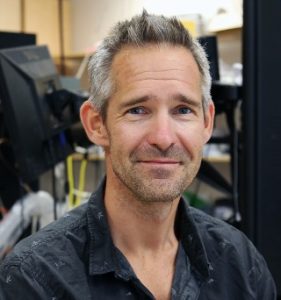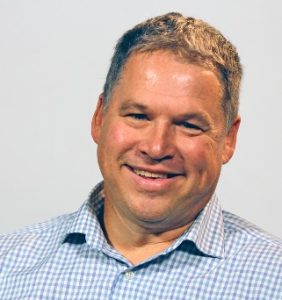Our Researchers
Centre Leadership
Prof Philip Ainslie, Co-Director
Tier 1 Principal’s Research Chair in Cerebrovascular Physiology in Health, Exercise and Disease
Professor, School of Health and Exercise Sciences, Faculty of Health and Social Development
The specific focus of Phil’s research is directed to two main inter-related areas of research:
- Regulation of cerebral blood flow in health, exercise and disease;
- Influence of environmental stress on integrative physiological function (esp. hypoxia, thermal stress, and diving physiology)
Phil keeps as active as possible with regular running (normally with his rescue mutts), telemark skiing, snowboarding, and all kinds of climbing water sports. He is also a big fan of microbreweries.
Prof Neil Eves, Co-Director
Professor, School of Health and Exercise Sciences, Faculty of Health and Social Development
Neil’s research interests are in the integrative aspects of pulmonary and cardiovascular physiology in health and disease. His primary research focuses on how the pulmonary and cardiovascular systems interact and contribute to adverse symptoms, exercise intolerance and the accelerated progression of cardiovascular disease that occurs in individuals with chronic respiratory conditions.
His laboratory also explores the role of novel interventions specifically tailored to attenuate symptoms and reduce cardiovascular disease risk in individuals with chronic cardiorespiratory conditions.
Neil is an avid skier and hiker, and will disappear during the summer for “out of office” meetings on the golf course.
Affiliated Members
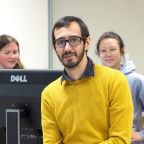
Associate Professor
School of Health and Exercise Sciences, Faculty of Health and Social Development
Dr. Dalton’s research interests focus on understanding the fundamental processes related to the sensorimotor control of human movement. His Sensorimotor Physiology and Integrative Neuromechanics Laboratory is currently interested in exploring how acute (e.g., fatigue, hypoxia, sleep deprivation) and chronic (e.g., adult aging, pathology) adaptations affect human performance and the neural control of movement and balance.

Professor
School of Health and Exercise Sciences, Faculty of Health and Social Development
As an integrative human physiologist, Glen’s research program aims to advance our fundamental understanding of how the cardiovascular, respiratory, and autonomic systems function in concert to support human life in a dynamic environment. His training environment supports and promotes the development of independent researchers who have the freedom to achieve the highest level of skill proficiency and creativity in their research.
Outside the lab, Glen enjoys spending time with his family on the ski slopes an on the lake!

Prof Jon Little
Professor
School of Health and Exercise Sciences, Faculty of Health and Social Development
Prof. Little’s laboratory employs a broad spectrum of techniques, spanning from whole-body metabolic measurement in humans down to advanced molecular analyses in isolated cells. Studies range from applied exercise and nutritional interventions in clinical populations (e.g., patients with type 2 diabetes) to basic studies examining intracellular signaling pathways and gene expression in cultured cells. Current exercise studies are focused around the health benefits of high-intensity interval training whereas nutrition studies explore how low-carbohydrate diets and nutritional ketosis impact cardiometabolic health.

Prof Ali McManus
Professor
School of Health and Exercise Sciences, Faculty of Health and Social Development
Prof. McManus’s primary research interest revolves around the impact exercise has upon cardiorespiratory function, health and body composition during the growing years. She has been concerned with generating a greater appreciation of the metabolic benefits that exercise and/or habitual physical activity may confer in both healthy children and those with chronic disease. This entails the development of population measures of obesity and its associated health risks, the provision of a more comprehensive understanding of the complex metabolic bases of exercise and physical activity in children and ultimately the refinement of recommendations regarding exercise prescriptions.
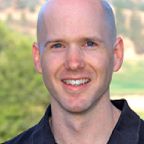
Dr Chris McNeil
Associate Professor
School of Health and Exercise Sciences, Faculty of Health and Social Development
Chris’ primary research interests relate to the plasticity (adaptability) of human neuromuscular function. Much of Chris’ work focuses on the mechanisms of neuromuscular fatigue; i.e., the adaptations within the brain, spinal cord, and muscle that lead to impaired performance of a task. Among the many factors that influence fatigability, Chris is currently focused on sex-and age-related differences, acute and chronic hypoxia, as well as chronic obstructive pulmonary disease. Cerebral and muscle blood flow greatly impact muscle performance, so Chris collaborates with other members of the Centre to advance our understanding of how the cardiovascular, pulmonary, and neuromuscular systems interact during fatiguing exercise. In 2024, Chris started investigating the acute effects of cannabis consumption on neuromuscular and cognitive function, an exciting line of inquiry to address the lack of research-based evidence about the physiological effects of cannabis.
Chris commutes to UBC on his bicycle year round, so he’s grateful for the mild Okanagan winters. He also enjoys skiing, hiking, and having a good laugh.

Prof Rob Shave
Professor
School of Health and Exercise Sciences, Faculty of Health and Social Development
Prof. Shave’s research examines the acute and chronic impact of exercise upon the heart in both health and disease. Using echocardiography and biomarkers Prof. Shave and his colleagues at Brunel University and Cardiff Metropolitan University have provided insight to the beneficial and potentially negative effects of endurance exercise upon the heart. In 2011 Prof. Shave established the International Primate Heart Project to examine heart disease in great apes and to provide insight into the evolution of the human heart. Now at UBC, Prof. Shave will continue to combine comparative and experimental physiology approaches to further understand structural and functional cardiovascular adaptations to exercise in a range of populations with a specific focus on evolutionary mismatch.

Dr Christine Voss
Assistant Professor
Department of Pediatrics, Faculty of Medicine, UBC
Dr. Voss’ overall research goals are to better understand how physical activity behaviours relate to current and long-term health outcomes in children and youth living with chronic conditions (e.g. congenital heart disease, type 1 diabetes), and to identify strategies to improve physical activity participation. For her clinical research projects, she collaborates closely with clinical colleagues at BC Children’s Hospital and Interior Health. Across projects, she integrates a range of methodologies to assess physical activity behaviours and contexts, ranging from qualitative interviews to global positioning systems (GPS), geographic information systems software (GIS), and commercial wearable activity trackers.
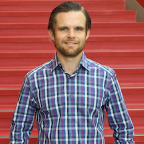
Dr Chris West
Associate Professor
Dept. of Cell & Physiological Sciences, Southern Medical Program, Faculty of Medicine, UBC
Dr. West directs the Translational Integrative Physiology Laboratory located on the UBCO campus. His laboratory has 2 main aims. The first is to understand the pathways that control cardiorespiratory and autonomic function after spinal cord injury and how to effectively manipulate them to improve the function of these systems. To achieve this first aim, Dr. West’s laboratory takes a translational approach to their research by conducting studies in a variety of animal models as well as individuals and athletes with spinal cord injury. The second main aim is to conduct fundamental research related to better understanding the cardiac inotropic response to reflexive activation of the cardiovascular centres in the brainstem. To achieve this second aim, Dr. West’s laboratory utilizes a range of experimental approaches in small and large animal models, including bilateral cardiac catheterization, high-resolution imaging, and direct neural recordings. Major recent findings in the lab have demonstrated that the heart is a more appropriate target than the vasculature to optimize spinal cord perfusion in the acute setting post-injury.
Chris is an avid outdoor sports enthusiast and can often be found exploring the trails around Kelowna with his two dogs Forrest and Layla.
